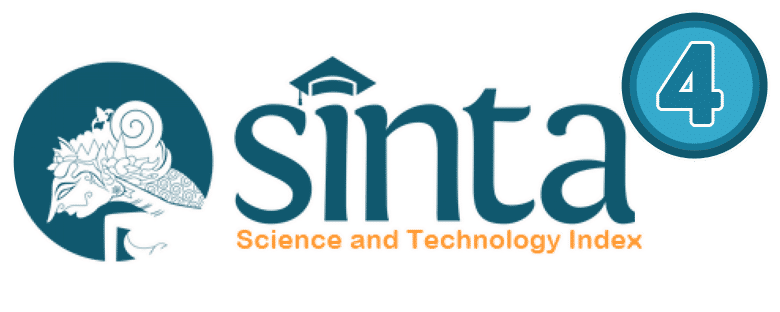Efforts to Boost Students' Self-Confidence Through Group Counseling Services in Junior High Schools
DOI:
https://doi.org/10.24114/icp.v6i1.65962Keywords:
Group Guidance Services, Self-Confidence, Junior High School StudentsAbstract
Most students at SMP Negeri 5 Percut Sei Tuan exhibit low self-esteem traits such as fear, shyness, cheating, and anxiety. These traits affect students' emotional well-being and make them less enthusiastic about attending classes. The purpose of this study is to improve students' self-confidence through group counseling services in junior high schools. The research methodology employed Guidance and Counseling Action (GCA), implemented in two cycles. Each cycle consists of four phases: planning, implementation, observation, and reflection. The research subjects were eighth-grade students with low self-confidence. The research findings showed that after receiving group counseling services, students' self-confidence improved. At school, group counseling services have proven to be a successful alternative solution for enhancing the self-confidence of junior high school students.References
Abdussamad, Z. (2021). Metode Penelitian kualitatif. Makassar: CV Syakir Media Press. Retrieved from https://repository.ung.ac.id/get/karyailmiah/8793/Buku-Metode-Penelitian-Kualitatif.pdf
Amri, S. (2018). Pengaruh Kepercayaan Diri (Self Confidence) Berbasis Ekstrakurikuler Pramuka Terhadap Prestasi Belajar Matematika Siswa Sma Negeri 6 Kota Bengkulu. Jurnal Pendidikan Matematika Raflesia, 3(2), 159. Retrieved from https://ejournal.unib.ac.id/jpmr/article/download/7520/3732/15342
Apriliani, D. M. (2025). Peran Support system dalam Pengembangan Program Bimbingan dan Konseling. JBK Jurnal Bimbingan Konseling, 3(1), 27–34. Retrieved from https://journal.sabajayapublisher.com/index.php/jbk/article/view/493/324
Artamevia, N., & Deliati. (2025). Penerapan Layanan Bimbingan Kelompok Teknik Problem Solving untuk Meningkatkan Kepercayaan Diri Siswa dalam Mengembangkan Kemampuan Diri. Jurnal Bimbingan Dan Konseling, 08(01), 242–247. Retrieved from http://jurnal.stkipbima.ac.id/index.php/GW/article/view/3284/1628
Asmaida, & Darmayanti, N. (2024). Peran Konseling Kelompok untuk Pengembangan Diri Siswa : Studi Literatur. Jurnal Kependidikan, 13(001), 607–618.
Aszahra, V. S., & Arifin, N. (2025). Pengaruh Layanan Bimbingan dan Konseling terhadap Peningkatan Etika Pergaulan Teman Sebaya Siswa di SMAN 7 Surabaya. Jurnal Bimbingan Dan Konseling, 22(1), 243–253.
Ayu, A. T., & Sa’idah, I. (2020). Penerapan Layanan Bimbingan Kelompok dengan Teknik Modelling untuk Meningkatkan Etika Pergaulan Siswa Di SMP Ma’Arif 4 Pamekasan. Journal of Guidance and Counseling Inspiration, 01(02), 101–114. Retrieved from http://etheses.iainmadura.ac.id/id/eprint//1317
Hasanah, H. (2016). Teknik-teknik observasi. Jurnal At-Taqaddum, 8(1), 21–46. Retrieved from https://journal.walisongo.ac.id/index.php/attaqaddum/article/download/1163/932
Hasanah, I., & Sa’idah, I. (2022). Bimbingan Kelompok; Teori dan Praktik. Jakarta: Duta Media Publishing.
Kumara, A. R. (2017). Bimbingan Kelompok. Yogyakarta: Universitas Ahmad Dahlan. Retrieved from https://eprints.uad.ac.id/41921/1/Buku Ajar Bimbingan Kelompok.pdf
Leonard, & Wibawa, B. (2019). Model dan Metode Pembelajaran di Kelas. Jakarta: Lembaga Penelitian dan Pengabdian kepada Masyarakat.
Maemunah, & Halisa, M. N. (2025). Analisis Efektifitas Pendekatan Bimbingan Konseling dalam Pemecahan Masalah dan Perencanaan Karir Siswa SMK Bina Insani Cisauk. Jurnal Intelek Insan Cendikian, 2(2), 2555–2566.
Masitoh, M. U., & Suhada. (2024). Dinamika Kelompok, Daya Tarik Interpersonal dan Perkembangannya. The International Journal of Pegon, 13(2). Retrieved from https://ejournalpegon.jaringansantri.com/index.php/INC/article/download/123/112/
Murti, M. K. (2023). Konseling kreatif,inovasi dan berfikir kritis dalam bimbingan dan konseling. Jurnal Prosiding, 18(07), 467–480. Retrieved from https://seminar.uad.ac.id/index.php/PSNBK/article/download/13226/3866
Nasution, H. S., & Abdillah. (2019). Bimbingan Konseling; Konsep,Teori,dan Aplikasinya. Medan: Lembaga Peduli Pengembangan Pendidikan Indonesia. Retrieved from http://repository.uinsu.ac.id/8065/1/Buku Bimbingan dan Konseling Komplit.pdf
Nurcahyati, A. (2025). Implementasi Teori Psikososial Erik H. Erikson pada Pembelajaran PAI untuk Membentuk Kepercayaan Diri Siswa. Teori psikososial, kepercayaan diri, pendidikan agama islam. Universitas Islam Indonesia. Retrieved from https://dspace.uii.ac.id/handle/123456789/54906
Pratiwi, A., & Putri, A. R. (2025). Upaya Meningkatkan Displin Belajar dengan Teknik Self Management dalam Layanan Konseling Kelompok di SMK Negeri 3 Medan. Jurnal Edukatif, 3(2), 66–72.
Rahayu, F. (2019). Evektivitas Self Efficacy dalam Mengoptimalkan Kecerdasan dan Prestasi Belajar Peserta Didik. Jurnal Ilmiah BK, 2(2), 66–74. Retrieved from https://ejournal.unib.ac.id/index.php/j_consilia
Rofiqi, & Rahmawati, R. kurnia N. (2023). Dinamika Kelompok dalam Cooperative Learning Model (Analisis Psikologi Sosial terhadap Interaksi Siswa dalam Pembelajaran Pendidikan Agama Islam). Jurnal Kependidikan, 15(2), 195–216. https://doi.org/10.36835/alirfan.v5i2.5756
Rostini, D., & Mastiani, E. (2023). Manajemen Pendidikan untuk Pengembangan Karakter dan Prestasi Siswa. Lombok Tengah: Pusat Pengembangan Pendidikan dan Penelitian Indonesia.
Downloads
Published
How to Cite
Issue
Section
License
Copyright (c) 2025 Ummi Kalsum Lubis

This work is licensed under a Creative Commons Attribution-ShareAlike 4.0 International License.
Authors who publish with this journal agree to the following terms:
- Authors retain copyright and grant the journal right of first publication with the work simultaneously licensed under a Creative Commons Attribution License that allows others to share the work with an acknowledgement of the work's authorship and initial publication in this journal.
- Authors are able to enter into separate, additional contractual arrangements for the non-exclusive distribution of the journal's published version of the work (e.g., post it to an institutional repository or publish it in a book), with an acknowledgement of its initial publication in this journal.
- Authors are permitted and encouraged to post their work online (e.g., in institutional repositories or on their website) prior to and during the submission process, as it can lead to productive exchanges, as well as earlier and greater citation of published work.







